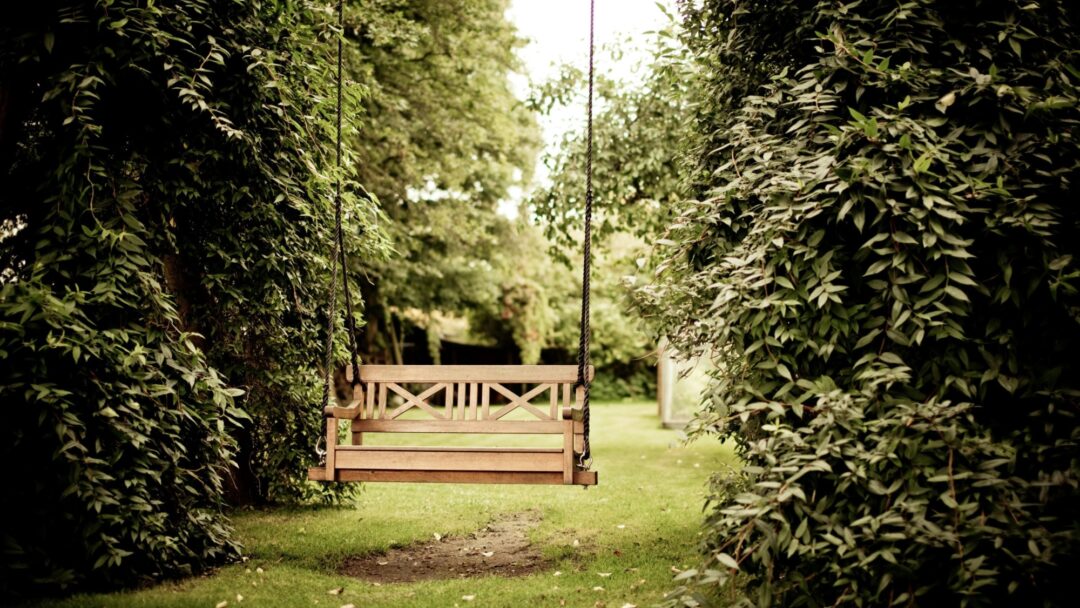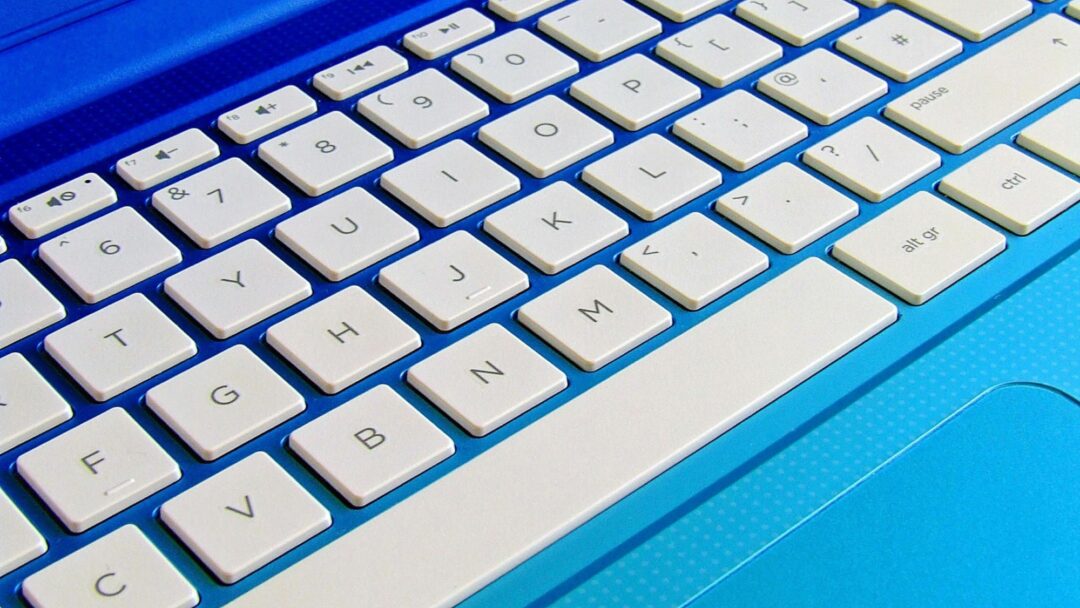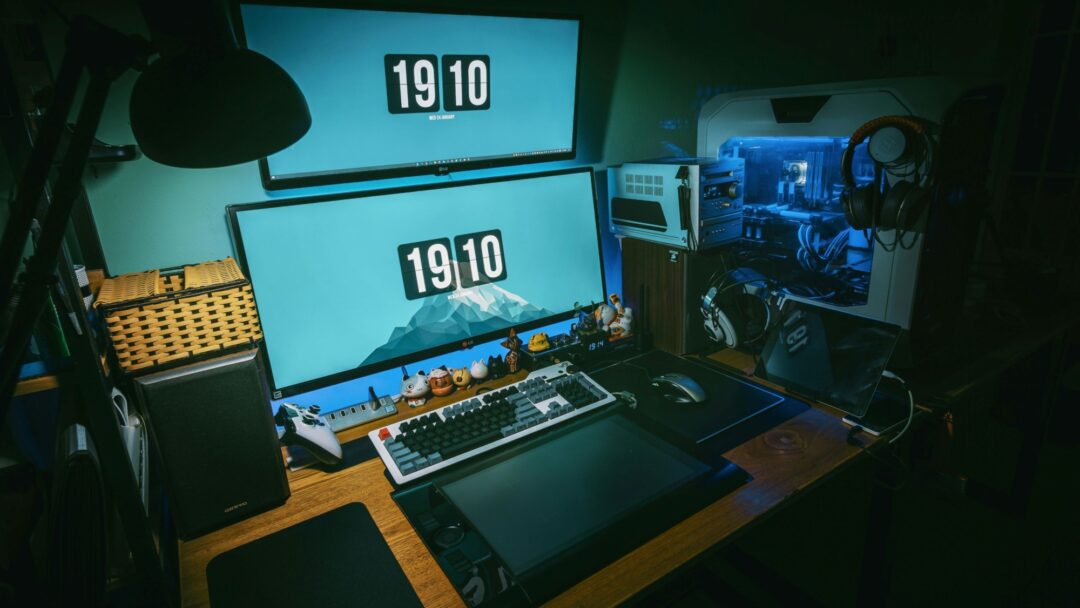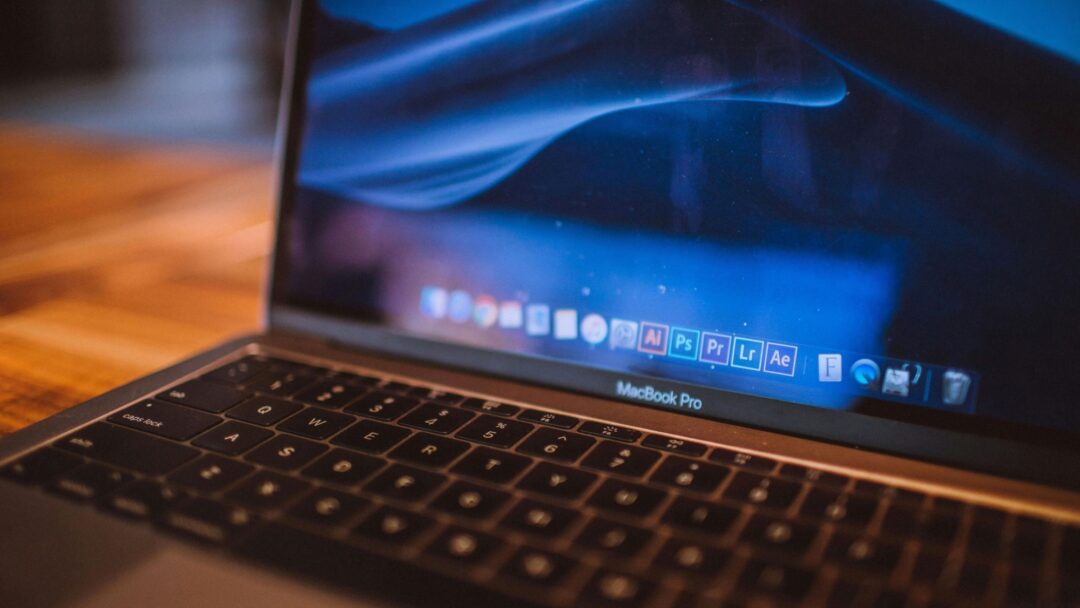Audio
Robert Duff-Silsby - Sexual Wellbeing
Ablequest by
2RPH3 seasons
13 mins
Features Robert Duff-Silsby of Luddi, Perth company developing assistive devices for all people and bodies.

Elaine Wziontek interviews Robert Duff-Silsby, the Co-founder and Project Manager of Luddi, a Perth based company revolutionizing assistive devices for all people and bodies. The topic of sexual wellbeing and sexual health is discussed. Note the content may be explicit.
Speaker 1 00:00
The following episode of Able Quest contains adult themes and is not suitable for children. Listener discretion is advised.
Speaker 2 00:11
With information on the latest developments in assistive technology and initiatives, from the studios of two RPH in Sydney, RPH Australia brings you AbleQuest. Hello, I'm Manny Roper. Sexual wellbeing is an important part of health and happiness, including for those with a disability.
Speaker 2 00:39
Having a physical or cognitive disability does not change your sexuality or your wish to express it. Indeed, the World Health Organization defines sexual health as a need, and everyone deserves to experience pleasure.
Speaker 2 00:54
Yet there are many misconceptions about this topic. As soon as you become disabled, your sex life disappears. People may think you don't want it or even like it. Today's guest, Robert Duff Sillsbury, is the co -founder and project manager of Luddy, a Perth -based company which is revolutionising assistive devices for all people and bodies.
Speaker 2 01:18
Founded in 2021 during COVID, after a chat over a coffee machine with physiotherapists about the lack of options and accessibility for people with a disability, has led to a sexual wellness product called Ziggy.
Speaker 2 01:34
It is now available through the NDIS. Elaine Jean -Tek spoke to Rob from his office in Perth. Thank you.
Speaker 1 01:42
Welcome to AbleQuest, Rob. So today we're going to talk about sexual wellness and disability. That's two taboo topics right there in polite conversation. So what spurred you to action with this being a co -founder and project manager of LUDDI?
Speaker 3 02:00
I think we were having conversations in the office around a lot of participants meet. This is one topic that really resonated with everyone in the office. We decided it's about time someone actually addressed this and took this head on.
Speaker 3 02:15
It's been a really exciting journey and I'm happy to share it with the world.
Speaker 1 02:20
So how big is this problem do you think?
Speaker 3 02:23
If you speak to any therapist out there, nine out of ten, especially working with adults, would probably say that they experience this with a variety of their participants. And then whenever we speak to the community, it's always a top secret that people are still really passionate about.
Speaker 3 02:40
And we've had people break down in tears in front of us just by the fact that suddenly there's people out there in the public, in public spaces talking about this sort of thing. So it's hidden away and a lot of people probably don't think this is something worth talking about.
Speaker 3 02:56
But when you speak to most people, it's something that comes up often.
Speaker 1 03:01
So you work with physiotherapist in a company called Inpirt, called Ascend Health. Can you just briefly tell us what that company does and how you came to be talking about this in the office?
Speaker 3 03:12
Yeah, Ascend Health is a disability service provider based out of Perth. We have over 80 support workers and there's a small team of therapists including physios, speech therapists and OTs. And that's what gives us a bit of an advantage at Ladi is that we share the office with this healthcare team that really gives us some good insight into participants' needs.
Speaker 3 03:35
But also quite critical whenever we develop a product or have an idea, have they obviously have real world experience and it's just a fun work environment to be able to test ideas and get people's feedback.
Speaker 1 03:49
So you're part of an assistive tech division within this company, is that right?
Speaker 3 03:53
We sort of spin off, I would say. Ascend Health was an early investor in Lodi. So there's three co -founders. Ascend Health was one of the investors and they've enabled us to tap into that therapy side of things, that knowledge of the industry.
Speaker 3 04:09
And that really gives us some good feedback. But we're generally a business to the side of them, but they give us a lot of guidance.
Speaker 1 04:17
What is the origin of LUDDI? Is it just a cool name?
Speaker 3 04:22
No, actually, we changed our name about 12 months ago, and that was to allow us to pay tribute to a really great doctor that he was a Jewish doctor hunted by the Nazis. He did a lot of great work with veterans that had acquired some sort of physical disability during the war.
Speaker 3 04:42
He was actually the founder of both the Invictus Games and the Paralympic Games. His name was Ludwig Goodman, so Luddy is our little tribute to Mr Ludwig.
Speaker 1 04:52
That's great. That's a terrific story. So sexual health is an important part of well -being and health. And I guess everybody with a disability is entitled to a sex life. As soon as you become disabled, your sex life doesn't disappear.
Speaker 3 05:08
Yeah, the who categorizes it as a basic need, a human right. So as you said, it doesn't appear with disability. A lot of the time it can actually become more of an issue, more of a topic because suddenly you're, if you require the disability, suddenly you're no longer able to participate in an activity that you yourself felt really quite passionate about, but also as a tool to express your intimacy with a partner.
Speaker 3 05:38
It will suddenly get amplified, that need when you can no longer express yourself in that way. So from that perspective, it becomes a bigger topic for a lot of people.
Speaker 1 05:50
So you can't express yourself because of mobility issues or is it you're embarrassed by certain? Yeah.
Speaker 3 05:56
Yeah, it's one of the first participants that really awakened us to this concept was someone that had a spinal cord injury, suddenly was no longer able to express themselves sexually. So that sense of relief, that sense of intimacy was taken away from them.
Speaker 3 06:13
That was what really drove our passion to start with and think, okay, maybe we addressed this topic, but as we started to look into assistive technology and the tools out there for sexual wellness, we actually, we saw this problem that exists across almost every product category and that's around developing high quality products that not only look and feel good, but that people would actually really desire to want.
Speaker 3 06:38
So it's expanded from that, but we definitely started with that need that one particular person had in it.
Speaker 1 06:46
So can you tell us a little bit about the process? You see the problem, so what happens then? Who do you talk to? How do you design something like this?
Speaker 3 06:54
It's quite an interesting journey to go through. We took our product from idea through to manufacturing 12 months, which is really quite quick for a first product for a company.
Speaker 1 07:07
Amazingly quick.
Speaker 3 07:09
We knew the need was there. We had a lot of early validation, but generally it started once we decided to do this. We just started drawing on the whiteboard. That progressed into playing with Play -Doh in different shapes.
Speaker 3 07:23
Then that turned into 3D design. We then got some 3D prints. The 3D prints were really handy because we could actually take those out to X -Bos and get user feedback on the shape and the size. From there, we then went into some prototyping with the manufacturer.
Speaker 3 07:41
It was 3 prototypes all up. Then the fourth one was the actual final product. It was a fun process of playing with all these different mediums.
Speaker 1 07:52
So do you have a name for this product and is it just one product?
Speaker 3 07:56
At the moment, the Ziggy is our first product. That's what we're showing people at the moment. We've got a couple of other designs that we're really excited to start manufacturing soon. But the Ziggy is certainly captured, not only in the assistive technology market, but we're actually seeing a lot of traction in the mainstream market as well, which is part of our mantra, is that we think assistive technology is a category, shouldn't really exist.
Speaker 3 08:24
And we would like to see lots of products being designed that are adaptive and accessible, but that the mainstream market would actually be really comfortable using as well.
Speaker 1 08:35
So what does it do that some other products can't do?
Speaker 3 08:38
Well the Ziggy, it's very versatile. There's lots of different ways that you can use it, and it's quite multi -gendered as well. So one of the things we're really proud of is that you don't have to be male, female, you don't have to have a vulva, penis, it doesn't really matter.
Speaker 3 08:53
These are all things that, there's lots of different ways that you can use the Ziggy, which makes it really adaptable, but there's also some really clever accessibility to our features in it as well.
Speaker 3 09:03
It's easy to pick up, easy to turn on and off. There's Braille, high contrast colors, the box is easy to access, there's easy read instructions, but it just, it looks cool.
Speaker 1 09:17
It looks cool. So how expensive is this and is it available on the NDIS?
Speaker 3 09:24
Yep, it's accessible through the NDIS. Actually, you can use assistive technology budget to fund sexual wellness products. This is, as I said before, we're trying to compete in the mainstream market.
Speaker 3 09:36
So we price the Ziggy at a level that anyone would be able to purchase it. So it's just under $300. But through our website, you can get an invoice, claim it through your usual process of low cost AT.
Speaker 1 09:51
So NDIS covers this. NDIS does recognize that sexual wellness is an issue when they're prepared to fund it.
Speaker 3 09:59
Yeah, it's one of the most progressive things I think about the NDIS. Although it's not really, I say that with a pinch of salt because when the reporting comes around people's improvements using the NDIS, we talk about physical improvement, mental health improvement, but when it comes to sexual health, it's very much in the negative term, it's around sexual abuse.
Speaker 3 10:19
We would like that to be flipped around and for it to be more publicly spoken about the support that the NDIS gives towards sexual wellness, but all sex toys can be claimed using NDIS funding, even sex workers as well, but that requires a bit more input from OTs, etc.
Speaker 3 10:37
Because that's a bit higher cost.
Speaker 1 10:39
So do you see the Ziggy mainly used by disabled people? Or does it do me to talk about it with OTs and physios? And so they have one in the office and they can show people.
Speaker 3 10:51
Yeah, we work really closely with therapists because we do see the need for them to be able to recommend products. A lot of people don't feel comfortable having conversations. So giving therapists the ability to talk about sexual health is really important for us.
Speaker 3 11:06
So we do a lot of training with therapists. And we also encourage people to actually have conversations with their team, whether it's with support workers, other therapists, even with their family. Being able to be open about this sort of topic, we think is one of the things that going forward would really improve a lot of outcomes for people.
Speaker 3 11:26
But we also have this need to be bright and bold and encourage people to be proud of their sexual honour. So people will ask us, why is the Ziggy so bright? Is it bright orange? It's because we don't think you should be ashamed of having products like this.
Speaker 3 11:41
This is part of your health.
Speaker 1 11:43
Do you need to plug it in or is it wireless?
Speaker 3 11:47
That's one of the cool features, the base station that the Ziggy sits on is a battery box. So we've designed that to be hidden away so you can use the Ziggy when you want to charge it, you just lay it on the charging station and you can put that in your drawer.
Speaker 3 12:02
The charging station holds charge for about three months, so you will need to plug that in every now and then, but it's just a magnetic charger, so it snaps on, really quite easy to use. So it allows a lot of people to get the help to charge it if they need to because this charging station doesn't look like a toy, but it allows you to access the port if you need to charge it whilst being discreet.
Speaker 1 12:28
That sounds great. So where can we learn more? Can you tell us the website?
Speaker 3 12:33
Yeah, our website is LUDDI .co, but we're also in a lot of mainstream sexual wellness product stores. There's also a couple of really progressive mobility stores out there as well, like the Brainerie, PushMobility, the Mobility Store and Perf.
Speaker 3 12:51
So if you require registered NDIS provider to purchase this, get in touch because we have some good stockers. So either through our website, through mainstream retail outlets or some mobility stores.
Speaker 1 13:03
Thank you very much Rob, great talking to you.
Speaker 3 13:06
Thank you.
Speaker 1 13:08
and that was Rob Duff Sillsbury, who's the co -founder and project manager of LUDDI. And they're the people who help revolutionise assistive devices for all people and bodies. And he was talking about a new product called Ziggy.
Speaker 1 13:23
And if you'd like to hear this program again, this interview is available as a podcast on the 2RPH website under AbleQuest.
Speaker 2 13:42
You have just been listening to AbleQuest, a program that looks at developments in assistive technology. Thank you for listening and goodbye to our next program.
Continue listening

Blind Sports Australia CEO Matt Clayton speaks about its work with blind and vision impaired athletes across 21 sports.
Matt Clayton - Blind Sports Australia
Ablequest by 2RPH
5/5/2023
•13 mins
Audio

Vivid, Sydney's celebration of creativity, seen from a disability access focus by its director.
Gill Minervini - Vivid
Ablequest by 2RPH
19/5/2023
•14 mins
Audio

This program discusses dance movement therapy and how it works - featuring Cecilia King of the Dance Therapy Association.
Cecilia King - Dance Therapy
Ablequest by 2RPH
14 mins
Audio

What are the challenges of providing audio description on Oz TV? Hear Lauren Henley, Aust Federation of Disability Organisations.
Lauren Henley - Audio Description
Ablequest by 2RPH
16/6/2023
•14 mins
Audio

In Part 1 of a 2RPH interview, assistive tech expert David Woodbridge explores latest innovations to make everyday life easier.
David Woodbridge - Tech Update Part 1
Ablequest by 2RPH
30/6/2023
•14 mins
Audio

Features Robert Duff-Silsby of Luddi, Perth company developing assistive devices for all people and bodies.
Robert Duff-Silsby - Sexual Wellbeing
Ablequest by 2RPH
13 mins
Audio

In Part 2 of this conversation with 2RPH's Ablequest, expert David Woodbridge reviews latest assistive technologies.
David Woodbridge - Tech Update Part 2
Ablequest by 2RPH
28/7/2023
•14 mins
Audio

Matt Clayton of Blind Sports Australia and the Oz team's Chef de Mission, discusses the forthcoming World Blind Games in the UK.
Matt Clayton - World Blind Games
Ablequest by 2RPH
11/8/2023
•13 mins
Audio

Prof Kim Marriott of the Monash Assistive Technology and Society Centre, talks about the purpose and work of the Centre.
Kim Marriott - Monash Assistive Technology and Society Centre
Ablequest by 2RPH
25/8/2023
•13 mins
Audio

Ablequest features an interview with Serena Ovens, new CEO of Assistive Technology Supplies Australia or "ATSA".
Serena Ovens - Assistive Technology Supplies Australia
Ablequest by 2RPH
14 mins
Audio

Part 1 of an interview on the voice-activated app, Bindi Maps.
Anna Wright - Bindi Maps (Part 1)
Ablequest by 2RPH
14 mins
Audio

This is Part 2 of an interview with Dr Anna Wright, explaining how Bindi Maps works.
Anna Wright - Bindi Maps (Part 2)
Ablequest by 2RPH
14 mins
Audio

Artist Ebony Wightman of disability-led We Are Studios talks about art and challenge.
Ebony Wightman - We Are Studios
Ablequest by 2RPH
20/10/2023
•13 mins
Audio

Prof. Leeanne Carey discusses the SENSe program, her team's world-first therapy to help stroke survivors.
Leeanne Carey - SENSe Therapy
Ablequest by 2RPH
2/11/2023
•13 mins
Audio

Youthworks Accessibility Minister Bec Baines talks of making church accessible to young people with disabilities.
Bec Baines - Youth and Worship
Ablequest by 2RPH
16/11/2023
•14 mins
Audio

Nikki Hind, Australia's first blind fashion designer, discusses her work.
Nikki Hind: Blind Grit
Ablequest by 2RPH
1 December 2023
•14 mins
Audio

Dr Dimity Williams, family GP, recommends spending more time in nature - and a "green hour" each day.
Green Hour: Dr Dimity Williams
Ablequest by 2RPH
5 December 2023
•14 mins
Audio

Imagine sitting in a wheelchair for hours, being unable to move your fingers or arm to do simple things like pick up a glass.
Konstanze Hager - Bateo
Ablequest by 2RPH
Konstanze Hager - Bateo
•14 mins
Audio

Action Audio is a new language being created to transcend sport.
Machar Reid - Action Audio
Ablequest by 2RPH
Machar Reid - Action Audio
•14 mins
Audio

What a difference one person with experience, passion and energy can make to many lives.
Julie Ross-Edwards - Head High
Ablequest by 2RPH
Julie Ross-Edwards - Head High
•14 mins
Audio

Driver educator outlines what's needed for a person with disability to get a driver's licence.
Ronak Shah: on-road driving education
Ablequest by 2RPH
12 January 2024
•14 mins
Audio

Vision Australia's Christo Sarantakis talks of his life, blindness and assistive tech changes.
Christo Sarantakis of Vision Australia
Ablequest by 2RPH
26 January 2024
•14 mins
Audio

Introducing Australia's first pictureless feature film, TOUCH, showing in Sydney.
Majella Knobel: "Touch" - open air movie
Ablequest by 2RPH
9 February 2024
•14 mins
Audio

An expert discusses the use of horticultural therapy for people with disabilities.
Steven Wells: horticultural therapy
Ablequest by 2RPH
23 February 2024
•14 mins
Audio

Features articles on latest blind-assistive tech including a new bus app and smart ear buds.
Assistive tech news catchup
Ablequest by 2RPH
8 March 2024
•14 mins
Audio

Features an innovative hospitality industry training program for people with disabilities.
Saraya O'Connell - Hotel Etico Independence Program
Ablequest by 2RPH
22 March 2024
•14 mins
Audio

Guests discuss the Obi robotic dining assistant for people with upper arm disabilities.
Hugh Kingley and Rachel Dekkar: Obi
Ablequest by 2RPH
19 April 2024
•14 mins
Audio

A spy-themed computer program tackles the mystery of social encounters - outlined by its company's CEO.
Kathleen Davey - Social Science Translated
Ablequest by 2RPH
3 May 2024
•14 mins
Audio

A Sydney organisation delivers creative arts and life skills to people with disabilities.
ChoppA Green - Studio Artes
Ablequest by 2RPH
17 May 2024
•14 mins
Audio

An award-winning Central Coast NSW disability service shares its successful strategies.
Lonestar Makoni - Breaking Barriers Disability Services
Ablequest by 2RPH
31 May 2024
•14 mins
Audio

Part 1 of a conversation with an Australian neuroscience research pioneer about benefits of music in brain injury recovery.
Professor Sarah Wilson (part 1)
Ablequest by 2RPH
14 June 2024
•14 mins
Audio

Part 2 of a conversation with a leading neuroscientist of benefits of music in brain injury recovery.
Professor Sarah Wilson (part 2)
Ablequest by 2RPH
28 June 2024
•14 mins
Audio

A CEO talks about his company's award-winning assistive physical therapy device.
Justin Keenan - LusioMate
Ablequest by 2RPH
12 July 2024
•14 mins
Audio

Information about a program teaching good cyber-security practices to make daily life safer.
Jess Wilson: Be Connected
Ablequest by 2RPH
26 July 2024
•14 mins
Audio

A veteran print disability broadcaster with macular degeneration shares her experiences.
Teresa Plane - 2RPH
Ablequest by 2RPH
9 August 2024
•14 mins
Audio

The founder of a blind-assistive technology company shares latest developments.
Peter Ford - Control Bionics (part 1)
Ablequest by 2RPH
6 September 2024
•14 mins
Audio

Part 2 of an interview with the head of an innovative blind-assistive technology company.
Peter Ford - Control Bionics (part 2)
Ablequest by 2RPH
20 September 2024
•13 mins
Audio

Looks at a project to better inform refugee and migrant women on AI.
Good Things - Jess Wilson
Ablequest by 2RPH
4 October 2024
•14 mins
Audio

An expert with lived experience corrects some widespread misconceptions about stuttering.
Dale Williams - Stuttering Awareness Day
Ablequest by 2RPH
18 October 2024
•14 mins
Audio

An inventor discusses his an innovative cane tip to help people with blindness or low vision.
Peter Rickards - Sensaball
Ablequest by 2RPH
15 November 2024
•13 mins
Audio

Part 1 of an interview with an Australian expert on low-vision-assistive technology, on AI and other developments.
David Woodbridge (part 1)
Ablequest by 2RPH
29/11/2024
•14 mins
Audio

Conclusion of an interview with a leading Australian expert on blind-assistive technology.
David Woodbridge (part 2)
Ablequest by 2RPH
13 December 2024
•14 mins
Audio

Looks at the leading stroke treatment work of the Royal Rehabilitation Hospital, Ryde NSW.
Jason Redhead and Graham Cooper of Royal Rehab Ryde
Ablequest by 2RPH
10 January 2025
•14 mins
Audio

An innovative social media platform aims to address isolation and loneliness in the disability community.
Steve Bear - Alvie
Ablequest by 2RPH
7 February 2025
•12 mins
Audio

Australia's largest provider of Auslan sign services outlines its important work.
Brett Casey - Deaf Connect
Ablequest by 2RPH
21 February 2025
•14 mins
Audio

Looks at an Australian organisation's work at helping men seek help and build self-awareness.
Tommy Herschell - Find Ya Feet
Ablequest by 2RPH
7 March 2025
•14 mins
Audio

A speech pathoplogist discusses her work with young people's complex communication needs.
Denise West - Scope
Ablequest by 2RPH
21 March 2025
•14 mins
Audio

A vision-impaired disability rights advocate talks of her work and learning podcast skills.
Freya Wolf
Ablequest by 2RPH
4 April 2025
•14 mins
Audio

A leading Australian eye researcher talks of his team's work in creating new hope for people with retinal damage.
Raymond Wong - Centre for Eye Research Australia
Ablequest by 2RPH
18 April 2025
•14 mins
Audio

A wheelchair-using business owner, facilitator and car rally driver shares experiences and insights.
Mel Harrison - Sitting Low, Reaching High
Ablequest by 2RPH
2 May 2025
•13 mins
Audio

Disability Pride Month in July promotes awareness about people with disability and also celebrates individuals with disability.
Hannah Solomons - Sydney Disability Pride
Ablequest by 2RPH
Hannah Solomons - Sydney Disability Pride
•14 mins
Audio

Deb Roach is a three-time pole dancing world champion yet she has only one arm.
Deb Roach
Ablequest by 2RPH
Deb Roach
•13 mins
Audio

Being in nature is good for you whether it is being in the garden or walking along the beach.
Kayte Kitchen - Admirari Nature Therapy
Ablequest by 2RPH
Kayte Kitchen - Admirari Nature Therapy
•14 mins
Audio

Music can evoke emotions that bring back memories and the same is true for people living with dementia.
Zara Thompson - Music Therapy
Ablequest by 2RPH
Zara Thompson - Music Therapy
•14 mins
Audio

Laura Boccanfuso is founder and CEO of Van Robotics, a social robotics company based in South Carolina in the United States.
Laura Boccanfuso - Van Robotics
Ablequest by 2RPH
Laura Boccanfuso - Van Robotics
•14 mins
Audio

Two years ago Maggie O'Connell, in her mid 20's never had a full time job.
Maggie O'Connell - AFP
Ablequest by 2RPH
Maggie O'Connell - AFP
•14 mins
Audio

Julie Ross-Edwards, founder of Head High Disability Services, returns to Ablequest to speak more about Head High's philosophy and special approach.
Head High (Update)
Ablequest by 2RPH
Head High (Update)
•13 mins
Audio

David Woodbridge, an expert in assistive technology for people with no or low vision, is a regular guest on Ablequest.
David Woodbridge
Ablequest by 2RPH
David Woodbridge
•14 mins
Audio

Pete Horsley is the Founder of Remarkable, a global start up and initiative of the Cerebral Palsy Alliance.
Pete Horsley - Remarkable Disability Tech Summit
Ablequest by 2RPH
Pete Horsley - Remarkable Disability Tech Summit
•14 mins
Audio